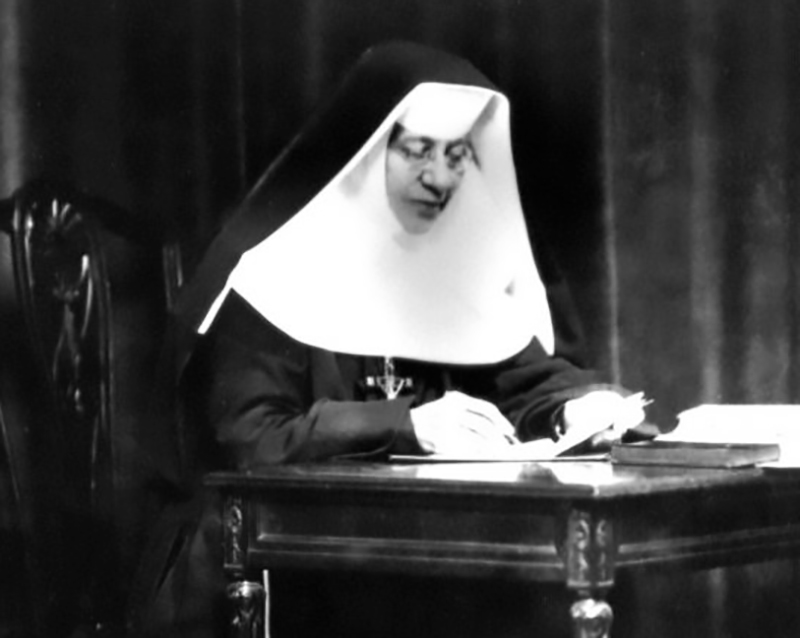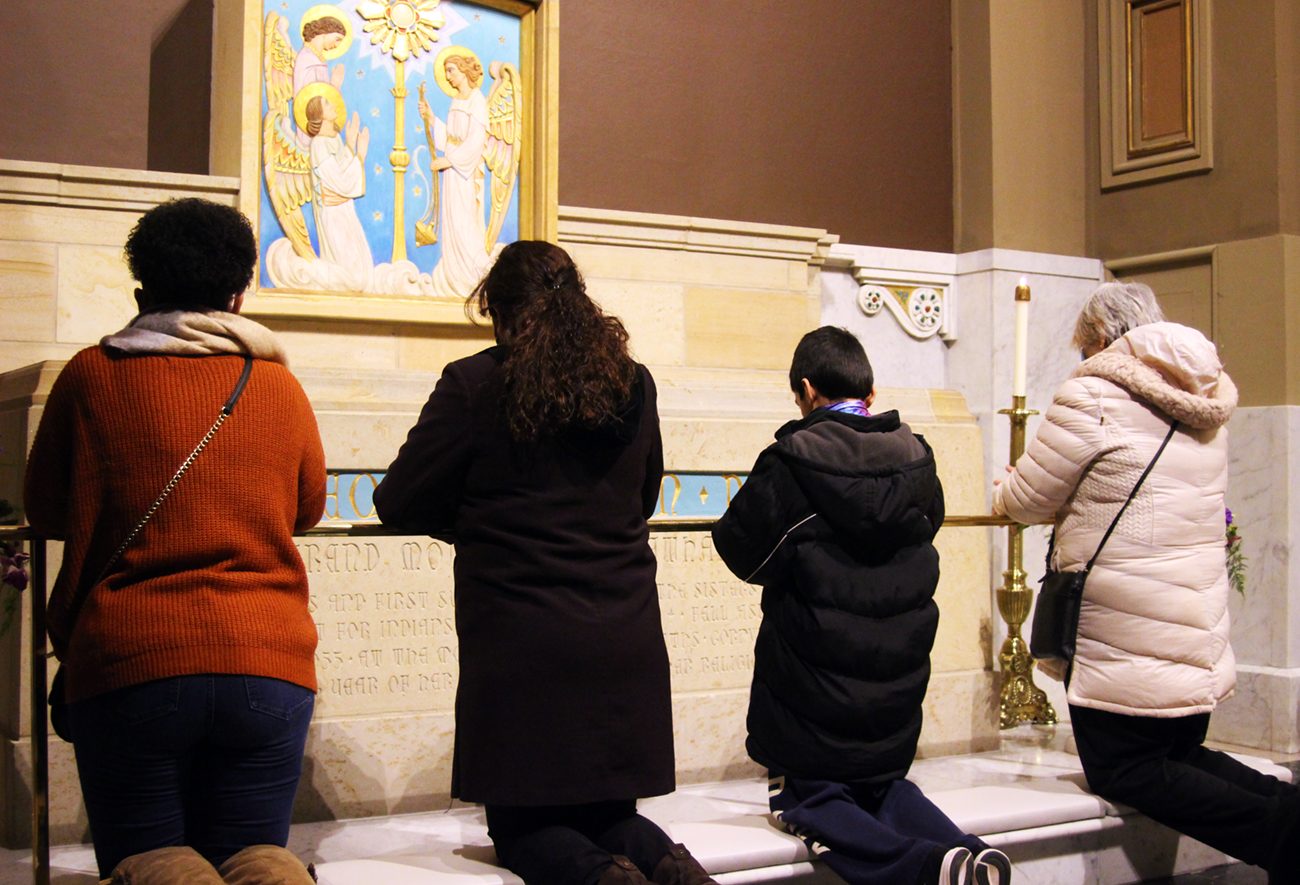Despite having a “remarkable” personal story, a Philadelphia saint shows that “we too can be holy,” said Father Dennis Gill, rector of the Cathedral Basilica of SS. Peter and Paul.
Father Gill was the principal celebrant and homilist at a March 3 liturgy honoring St. Katharine Drexel, a banking heiress who devoted herself to the education and evangelization of Blacks and Native Americans, while founding the Sisters of the Blessed Sacrament.
Born in 1858, she sensed a call to religious life from an early age, a vocation that was affirmed during a private audience with Pope Leo XII in 1887. After completing her novitiate with the Sisters of Mercy in Pittsburgh, she established her new congregation in 1891, ultimately spending more than $20 million of her inheritance to build schools and missions in support of the order’s work.
[hotblock]
Several of the sisters joined some 135 in-person faithful and dozens of livestream participants at last week’s Mass, which had been preceded by a solemn novena to the saint, whose remains were transferred from their former Bucks County shrine to the Cathedral in 2018.
A number of attendees visited the tomb prior to and after the liturgy, drawn by “a connection that’s stronger than just reading about a saint somewhere else” in the world, said Beth Racine, assistant director of Drexel’s national shrine at the Cathedral.
“She walked the streets here, she lived here, she worshipped here,” said Racine, noting that Drexel’s tomb is located just inches from the side altar her family had donated decades earlier.
In his homily, Father Gill said that as “our hometown saint,” Drexel is “ready to come to our aid so that we too might be saints in this life, and have a promise of glory in heaven.”

St. Katharine Drexel (Wikimedia Commons)
While “some people suggest that it is not possible to follow the Lord” and that “holiness is meant somehow for those who are extraordinarily gifted,” Drexel’s sanctity “came down to three things present (throughout) her life,” said Father Gill.
First among these was a commitment to justice, which spurred the saint to challenge racism and inequality.
“She wanted things to be right before God and among people,” he said. “And when someone is committed to justice, they want to root out anything that separates themselves and others from God.”
This “hallmark of her apostolic zeal” was bolstered by “an unwavering devotion to Jesus and his church,” said Father Gill.
Above all, “her entire life was grounded in the holy Eucharist,” he said.
“She knew … about the great grace and power that came from being united to Jesus and his sacrifice on the altar,” said Father Gill. “This was the strength of her consecrated life, that she would allow herself to be offered with him … so that as Jesus was poured out in the service of others, … so she was.”
In addition to the Mass, Eucharistic adoration was central to Drexel, whose family home had contained a private chapel.
“It wasn’t accidental that she founded the Sisters of the Blessed Sacrament and gave them this beautiful title,” he said.
Father Gill — who also penned the lyrics to the Mass’s opening hymn in honor of Drexel — stressed “these three hallmarks can be ours as well.”
Through their example as “tremendous, splendid witnesses,” saints concretely demonstrate “that it is possible to follow our Lord Jesus Christ as he instructs us,” he said.
“We need the saints,” he concluded. “We need St. Katharine Drexel.”
PREVIOUS: At St. Mary Magdalen series, priest shares his journey from Idaho farm to Media
NEXT: Little Flower H.S. students find God on TikTok




Share this story